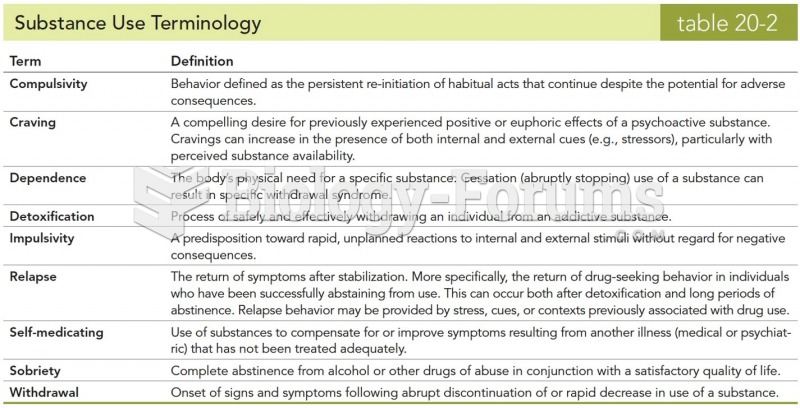|
|
|
Symptoms of kidney problems include a loss of appetite, back pain (which may be sudden and intense), chills, abdominal pain, fluid retention, nausea, the urge to urinate, vomiting, and fever.
Dogs have been used in studies to detect various cancers in human subjects. They have been trained to sniff breath samples from humans that were collected by having them breathe into special tubes. These people included 55 lung cancer patients, 31 breast cancer patients, and 83 cancer-free patients. The dogs detected 54 of the 55 lung cancer patients as having cancer, detected 28 of the 31 breast cancer patients, and gave only three false-positive results (detecting cancer in people who didn't have it).
In ancient Rome, many of the richer people in the population had lead-induced gout. The reason for this is unclear. Lead poisoning has also been linked to madness.
When intravenous medications are involved in adverse drug events, their harmful effects may occur more rapidly, and be more severe than errors with oral medications. This is due to the direct administration into the bloodstream.
The heart is located in the center of the chest, with part of it tipped slightly so that it taps against the left side of the chest.
 The medical assisting profession offers many settings in which to pursue your career. Good communica
The medical assisting profession offers many settings in which to pursue your career. Good communica
 Sample of an informed consent to perform an operation, sedation, anesthesia, and other medical servi
Sample of an informed consent to perform an operation, sedation, anesthesia, and other medical servi
 Headsets are ergonomically correct and allow the medical assistant or receptionist to use both hands
Headsets are ergonomically correct and allow the medical assistant or receptionist to use both hands




